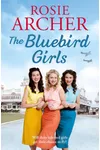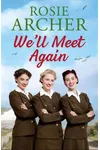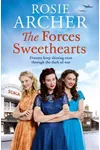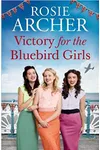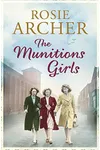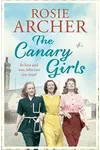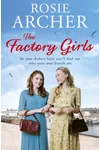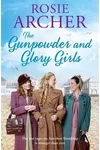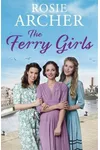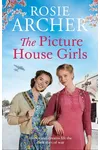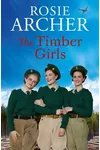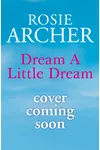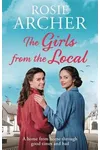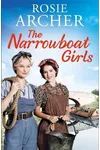Picture a Hampshire storyteller who spun wartime grit into heartfelt sagas—meet Rosie Archer! Born and raised in Gosport, this historical fiction maven brought the unsung heroines of World War II to life through her beloved Bomb Girls series. With a knack for weaving meticulous historical detail into tales of friendship, love, and resilience, Archer’s novels capture the spirit of women toiling in Britain’s munitions factories, making her a cherished voice in wartime fiction.
Archer’s stories aren’t just page-turners; they’re a tribute to the working-class women who powered the home front. Her vivid prose and relatable characters pull readers into the heart of 1940s Britain, where courage and camaraderie shine amid danger and hardship. Let’s dive into the life and legacy of this remarkable author!
The Making of Rosie Archer
Rosie Archer was born in Gosport, Hampshire, where she still resides, steeped in the coastal town’s rich wartime history. Before becoming a novelist, Archer juggled an eclectic array of jobs—waitress, fruit picker, barmaid, shop assistant, and even market trader selling second-hand books. These diverse experiences shaped her understanding of working-class life, infusing her writing with authenticity and warmth. Her early forays into storytelling came through short stories published in women’s magazines, honing her craft for crafting relatable, emotionally resonant narratives.
Archer’s deep connection to Gosport, a hub of naval and wartime activity, inspired her to explore the lives of women who worked in munitions factories during World War II. Writing under her own name and as June Hampson for gangster sagas, she found her true calling in historical fiction, where her vivid imagination and research skills brought the past to life.
Rosie Archer’s Unforgettable Stories
Archer’s flagship Bomb Girls series, starting with The Munitions Girls (2015), is a heartfelt saga of women like Pixie, Rita, and Emily, who build bombs in Gosport’s Priddy’s Hard factory. The series, spanning four novels, follows their friendships, romances, and struggles against the backdrop of air raids and dangerous work. The Canary Girls (2015) introduces Rita, Liz, and Gladys, whose skin and hair turn yellow from handling TNT, earning them their nickname. The Factory Girls (2016) delves into family secrets and local crooks, while The Gunpowder and Glory Girls (2016) wraps up with Gladys navigating new challenges as the war nears its end.
Beyond the Bomb Girls, Archer penned other wartime sagas like The Narrowboat Girls (2018), which follows women delivering goods via England’s canals, and The Bluebird Girls series, about singers boosting morale. Her style blends gritty realism with hope, painting vivid portraits of women who defy hardship with spirit and solidarity. Archer’s meticulous research—evident in details like the chemical stains on canary girls’ skin—grounds her stories in historical truth, while her warm, accessible prose makes them universally appealing.
Her characters, often young women facing societal constraints, resonate with readers for their pluck and loyalty. Whether it’s Pixie’s defiance or Elsie’s fresh start on the waterways, Archer’s heroines embody the strength of ordinary women in extraordinary times.
Why Rosie Archer Matters
Rosie Archer’s impact lies in her ability to spotlight the overlooked contributions of women during World War II. By focusing on munitions workers—nicknamed “bomb girls” or “canary girls”—she honors the real-life women who risked their lives in dangerous factories. Her novels capture the sisterhood and resilience that defined the home front, offering a fresh perspective on a well-trodden historical period. Fans praise her for bringing history to life with emotional depth, with reviews calling her work “heartwarming” and “hard to put down.”
Archer’s legacy endures through her authentic portrayal of working-class voices, especially women’s experiences, which continue to inspire readers and writers in the historical fiction genre. Her stories remind us that even in the darkest times, friendship and courage can light the way.
- Born: Gosport, Hampshire
- Key Works: The Munitions Girls, The Canary Girls, The Factory Girls, The Narrowboat Girls
- Genres: Historical fiction, wartime sagas
Ready to step into the 1940s with Rosie Archer’s bomb girls? Snag The Munitions Girls and discover the heart and grit of her wartime world!
